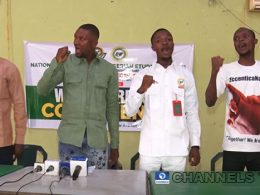The Lagos State Government on Thursday reiterated its commitment to ending open defecation by 2025 in line with the National programme tagged: “Clean Nigeria: Use The Toilet Campaign”.
Addressing a South-West State Zonal Review Meeting on Clean Nigeria Campaign at Ikeja, Commissioner for the Environment and Water Resources, Tunji Bello said the State is setting the pace through various initiatives to meet the 2025 ODF target.
He said the campaign is aimed at mobilising high-level political support, resources and the entire populace towards building a new culture of safe and sustainable sanitation to achieve the target of making Nigeria Open Defecation Free (ODF) by 2025.
Bello, represented by the Permanent Secretary, Office of Environmental Services, Mr. Omobolaji Gaji, said that Lagos State convened the first zonal review meeting to appraise the progress of the campaign in the South-West Region States, evaluate the State’s priority actions and assess the progress made on the campaign thus far.
He noted that in a bid to achieve ODF Nigeria, Lagos State Government initiated a Four-Point Roadmap to drive the State’s action and commitment to the national agenda.
His words: “We initiated a four-point Roadmap Agenda viz Public Enlightenment and Communication (PEC), Regulation and Standardisation, bridging of Infrastructural Gaps and Monitoring, Evaluation & Enforcement to drive the State’s action”.
“We have also initialised Public-Private Partnership (PPP), Public Sector Participation (PSP) and Corporate Social Responsibility (CSR) plans in the provision of public toilets across the State to bridge the infrastructural deficit”, the Commissioner emphasised.
He revealed that the State Government, in partnership with Reckitt Benckiser, engaged 10 Youth Volunteers in five pilot LGAs (Lagos Island, Lagos Mainland, Mushin, Ifako-Ijaiye and Ikorodu) for a continuous sensitisation and awareness exercise on best practices in Sanitation and Hygiene.
Bello averred that the initiative is also geared towards creating behavioural change, increasing knowledge on the effects of open defecation and identifying the best care for sanitary facilities.
“As a responsible State Government, I want to reassure you of Mr. Governor’s readiness to take proactive measures in ensuring efficient enterprise and inclusive city through improved access to clean water and sanitation as contained in the Lagos Resilience Strategy document”, he stated.
Declaring the session open, he stressed the need to discuss extensively the National Road Map of Clean Nigeria Campaign initiative as it suits the peculiarities of States and proffer solutions that are innovative, efficient and sustainable.
In his remarks, the Minister of Water Resources, Engr. Suleiman Adamu, said the review meeting has brought together the State focal officers for the Clean Nigeria Campaign and other organisations charged with delivering sanitation and hygiene services across the six States within the South-west.
Engr. Adamu, represented by the National Coordinator, Clean Nigeria Campaign, Mrs. Damilola Komolafe, said the campaign was borne out of Nigeria’s unfortunate position among top countries with the highest number of people practising open defecation, which was estimated at 46 million persons.
He informed that the Federal Minister of Water Resources has been leading the drive to ensure that Nigeria meets the Water, Sanitation and Hygiene (WASH) indicators for the Sustainable Development Goal SDG 6.
The Minister pointed out that not much is going on regarding the implementation and achievement of results in meeting the campaign objectives in many States, saying it is, therefore, imperative that everything is done to change the narrative concerning the practice of open defecation in Nigeria.
Adamu, however, commended Lagos State Government for taking the lead to host the first State zonal review meeting for the South-West.
The two-day review meeting attracted stakeholders from all the South-West States.









